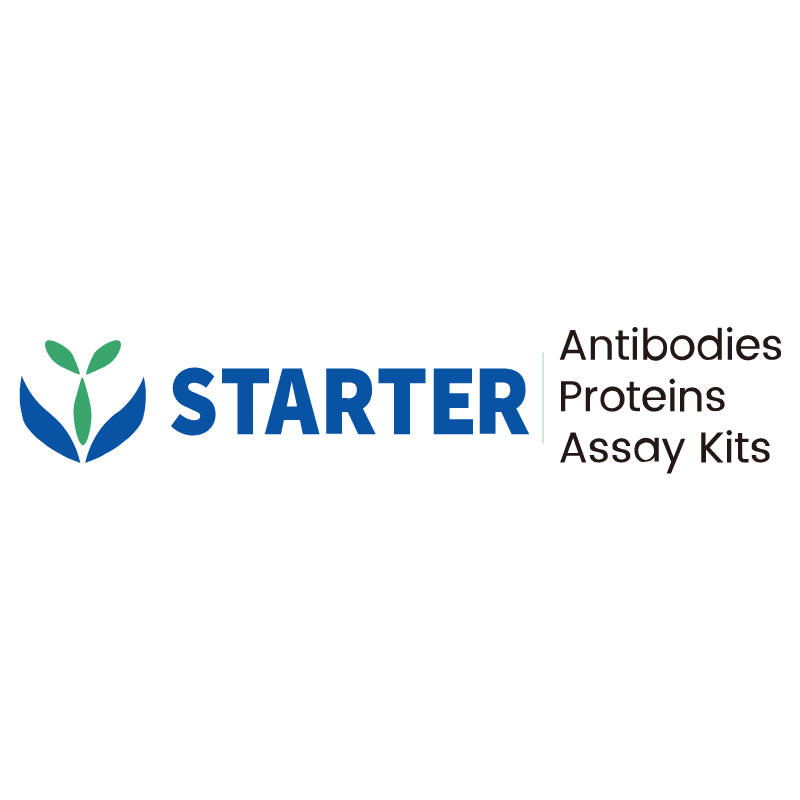WB result of Symmetric Dimethyl Arginine (SDMA) Recombinant Rabbit mAb
Primary antibody: Symmetric Dimethyl Arginine (SDMA) Recombinant Rabbit mAb at 1/1000 dilution
Lane 1: HeLa whole cell lysate 20 µg
Secondary antibody: Goat Anti-rabbit IgG, (H+L), HRP conjugated at 1/10000 dilution
Predicted MW: Multiple
Observed MW: Multiple
Product Details
Product Details
Product Specification
| Host | Rabbit |
| Antigen | Symmetric Dimethyl Arginine |
| Immunogen | Synthetic Peptide |
| Clone Number | S-2129-14 |
| Antibody Type | Recombinant mAb |
| Isotype | IgG |
| Application | ELISA, WB, IHC-P |
| Reactivity | Species Independent |
| Purification | Protein A |
| Concentration | 1 mg/ml |
| Conjugation | Unconjugated |
| Physical Appearance | Liquid |
| Storage Buffer | PBS, 40% Glycerol, 0.05% BSA, 0.03% Proclin 300 |
| Stability & Storage | 12 months from date of receipt / reconstitution, -20 °C as supplied |
Dilution
| application | dilution | species |
| WB | 1:1000 | Species Independent |
| IHC-P | 1:2000 | Species Independent |
Background
Symmetric Dimethylarginine (SDMA) is a metabolic product of the post-translational modification of arginine residues in proteins, a process catalyzed by protein arginine methyltransferases (PRMTs). Unlike its isomer, Asymmetric Dimethylarginine (ADMA), the two methyl groups in SDMA are attached symmetrically to the nitrogen atoms of the arginine's guanidino group. This critical structural difference results in a major distinction in their biological functions: ADMA is a potent inhibitor of endothelial nitric oxide synthase (NOS), impeding the production of nitric oxide (NO), whereas SDMA has a very weak direct inhibitory effect on NOS. However, SDMA is not physiologically insignificant; it can indirectly interfere with the cellular uptake of the NOS substrate L-arginine by competing for the cationic amino acid transporters (y+ transport system) on the cell membrane, thereby influencing NO synthesis. In recent years, the clinical importance of SDMA has grown significantly, particularly in nephrology, where it has been recognized as an excellent biomarker that is earlier and more sensitive than creatinine in detecting a decline in the glomerular filtration rate (GFR). This is because it is almost exclusively excreted by the kidneys and is unaffected by common confounding factors such as muscle mass, age, gender, or diet. Furthermore, elevated SDMA levels have also been associated with cardiovascular disease, inflammation, and poor prognosis in various clinical conditions, making it a valuable tool for comprehensive risk assessment.
Picture
Picture
Western Blot
Immunohistochemistry
IHC shows positive staining in paraffin-embedded human kidney. Anti-Symmetric Dimethyl Arginine (SDMA) antibody was used at 1/2000 dilution, followed by a HRP Polymer for Mouse & Rabbit IgG (ready to use). Counterstained with hematoxylin. Heat mediated antigen retrieval with Tris/EDTA buffer pH9.0 was performed before commencing with IHC staining protocol.
IHC shows positive staining in paraffin-embedded human colon. Anti-Symmetric Dimethyl Arginine (SDMA) antibody was used at 1/2000 dilution, followed by a HRP Polymer for Mouse & Rabbit IgG (ready to use). Counterstained with hematoxylin. Heat mediated antigen retrieval with Tris/EDTA buffer pH9.0 was performed before commencing with IHC staining protocol.
IHC shows positive staining in paraffin-embedded human colon cancer. Anti-Symmetric Dimethyl Arginine (SDMA) antibody was used at 1/2000 dilution, followed by a HRP Polymer for Mouse & Rabbit IgG (ready to use). Counterstained with hematoxylin. Heat mediated antigen retrieval with Tris/EDTA buffer pH9.0 was performed before commencing with IHC staining protocol.
IHC shows positive staining in paraffin-embedded human cervical squamous cell carcinoma. Anti-Symmetric Dimethyl Arginine (SDMA) antibody was used at 1/2000 dilution, followed by a HRP Polymer for Mouse & Rabbit IgG (ready to use). Counterstained with hematoxylin. Heat mediated antigen retrieval with Tris/EDTA buffer pH9.0 was performed before commencing with IHC staining protocol.
ELISA
ELISA binding assay shows Symmetric Dimethyl Arginine (SDMA) Antibody specifically binds to SDMA peptide.


